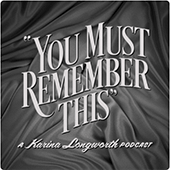While each episode of Rivals typically finds journalists Steven Hyden (a former music editor for The A.V. Club) and Jordan Runtagh diving into the history of some of pop music’s most explosive conflicts, this week features such a low-key feud from the ’90s alternative scene that it seemingly only exists in the mind of Smashing Pumpkins lead singer Billy Corgan. In 1994, Pavement’s Stephen Malkmus improvised a line on the song “Range Life” that gently mocked Corgan and his band. Malkmus meant no malice in the lyric, but Corgan, as our hosts explain, saw this as an attack by an elitist indie darling and would hold on to this resentment for decades. At this point, Malkmus pretty much disappears from the narrative, as Hyden and Runtagh spend the rest of the episode dissecting Corgan’s psyche to try to work out what the hell his problem is. They unpack Corgan’s hatred of so-called elites and the fact that, despite his phenomenal success, he still views himself as a persecuted nobody from the Midwest. After assessing all the symptoms, the hosts make a startling diagnosis: Billy Corgan is the Richard Nixon of alternative rock. [Anthony D Herrera]
This brand-new series turns its focus to the movies claiming to be based on a true story and measures them up against the actual events. It’s easy to see why hosts David Chen and Joanna Robison select the 1990 classic Goodfellas as their inaugural film, as there is no shortage of source material. Plumbing the same 1985 nonfiction book that introduced the world (and director Martin Scorsese) to mobster Henry Hill, our hosts gain insight into Scorsese’s decision to use dual voice-overs of Henry and his wife, Karen. Hill himself consulted with the actors as they were shooting and received close to $500,000 for use of his likeness. Joe Pesci, meanwhile, drew from a scary childhood encounter when he improvised the famous “You think I’m funny?” scene. Mafia researchers are brought in to discuss finer points of the trade that didn’t make the final cut, like pulling off heists and the code of silence. Yet the hosts are not so caught up in their fact-checking mission that they can’t enjoy the movie, and there’s a lot of discussion of Goodfellas’ artistic achievements and legacy. [Zach Brooke]
This season, Karina Longworth’s cinematic nostalgia podcast You Must Remember This is focusing on one Hollywood story in particular: the saga of “Polly Platt, The Invisible Woman.” Platt was a writer, producer, and Oscar-nominated production designer who was married to director Peter Bogdanovich while the two were working on his breakthrough movie, 1971’s The Last Picture Show. Unfortunately for Platt, Bogdanovich wound up falling for the movie’s 20-year-old star, Cybill Shepherd. Platt’s perspective on this painful event is covered in episode three, “Last Picture Show Love Triangle.” Platt had recently given birth to the couple’s second child, and as actor Maggie Siff reads from Platt’s unpublished memoir, she recounts harrowing tales like dragging two small kids to the grocery store while faced with Shepherd’s perfect visage on magazine covers. It soon became clear that her husband was in love with the star, but Platt refused to leave the set of the film she had worked so hard on; after all, she was the one who brought the Larry McMurtry novel to her husband in the first place. YMRT is always an engaging, gossipy listen, but the deep exploration into one woman’s largely ignored contributions to the film industry makes this season especially engrossing. [Gwen Ihnat]









































